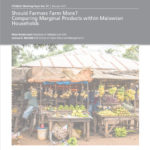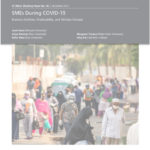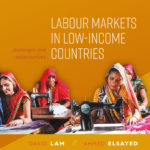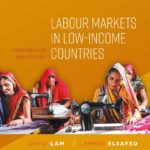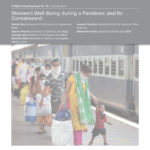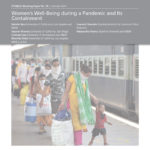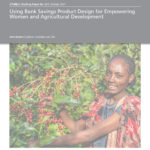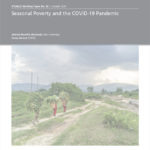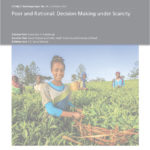It is well known within the field of development economics that farming is an economic activity confronted with risk. It is thought that farmers usually confront the risk of having their crop wasted by natural forces that vary in duration and frequency, by substituting farm- to non-farm labor. In this sense, economic literature would further…
Uncategorized
SME’s During COVID-19
The COVID-19 Pandemic has had a negative toll on the world and its economy in the past years. Although governments and countries have learned how to counteract the effects of the virus more effectively, the economic consequences of disease-induced lockdowns, among many other factors, have especially not been overcome in developing countries. To examine the…
Summary IZA/FCDO Book Launch
“Labour Markets in Low-Income Countries: Challenges and Opportunities” Poverty, informality and rural labour, skills training and behaviour, gender inequality, youth and child labour, and migration are some of the most pressing issues affecting labour markets in low-income countries. Which development policies will work and which strategies are likely to fail in these poorest countries? Based…
IZA/FCDO Book Launch “Labour Markets in Low-Income Countries: Challenges and Opportunities”
G2LM|LIC proudly announces the launch of the new book “Labour Markets in Low-Income Countries: Challenges and Opportunities” by David Lam and Ahmed Elsayed. It addresses some of the most important issues affecting labour markets in low-income countries. The book builds heavily on new research evidence that has been provided by the programme on Growth and…
Women’s Well-Being during a Pandemic and Its Containment
Pandemics are confronted in a different context in developing countries and thus its containment has different consequences. Women may be especially vulnerable in these settings given gender norms, low availability of mental health services, and weaker state capacity. To examine how women fare in these contexts during the COVID-19 Pandemic, the researchers conduct a large…
Migration and the Labour Market Impacts of COVID-19
Since COVID-19 is primarily transmitted via face-to-face contact, migration plays an outsized role in its global spread. Furthermore, as social distancing policies entail a restriction of migration, be it international or national, households’ whose income is dependent to some degree on labor migration remittances have seen their livelihoods considerably affected. With 272 million people living…
Using Bank Savings Product Design for Empowering Women and Agricultural Development
Access to formal deposit accounts is still far from a reality for 1.7 billion adults worldwide, most of them living in developing countries. Therefore, savings by the poor have become a priority in the development agenda and savings mobilization strategies for the poor are widely seen as key initiatives for agricultural development, food security and…
Seasonal Poverty and the COVID-19 Pandemic
Three quarters of the worlds’ poor live in rural areas. It is therefore imperative to understand how the COVID-19 Pandemic and the corresponding economic recession affects them. As a long research line has already investigated, seasonality is a preponderant economic feature in the life in rural communities. Today, many countries in Sub-Saharan Africa and South…
Poor and Rational: Decision-Making under Scarcity
Individual decision-making is prone to behavioral biases and deviations, especially among the poor. To get a grip on the extent of this, multiple approaches have been developed and investigated, however, evidence on how and why the availability of financial resources affects decision-making is largely missing. In this paper, researchers use multiple resources of variation in…
COVID-19 vs. the Ultra-Poor Graduation Approach: Evidence from Bangladesh
Hybrid Event The poorest and the most vulnerable households in low-income countries have been hit hardest by COVID-19. In Bangladesh, an additional 22.9% of the population fell below the poverty line. Against this backdrop, BIGD, BRAC, G²LM|LIC, LSE, and STICERD are jointly organizing a hybrid event in which Oriana Bandiera and Imran Matin discuss the impact…
